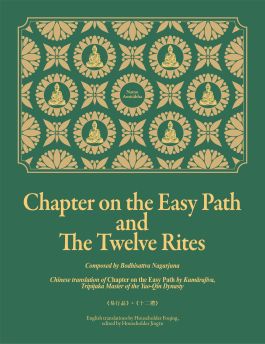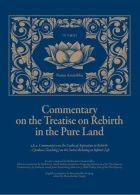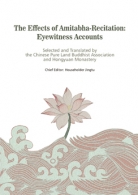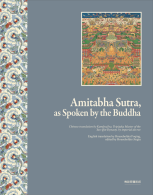A08 Chapter on the Easy Path and The Twelve Rites

Author: Composed by Bodhisattva Nagarjuna;Chinese translation of Chapter on the Easy Path by Kumārajīva, Tripiṭaka Master of the Yao-Qin Dynasty
Translator: English translation by Householder Foqing, edited by Householder Jingtu
Publication Date: 2024-10
PDFBrief Introduction
Chapter on the Easy Path is the ninth section of Nagarjuna’s Exposition of the Ten Stages. The work was translated by Tripitaka Master Kumarajiva in 412.
The main intention of the Chapter on the Easy Path was to induce general Mahayana practitioners to forsake the difficult way for the easy one and recite the name of Amitabha Buddha according to his Fundamental Vow. Its goal was achievement of the Bodhisattva path’s “non-retrogression in the present lifetime,” and the method was “reciting and holding fast to” Amitabha’s name.
The Chapter comprises two sets of questions and answers. In the first, certain easy practices are identified from among the innumerable Dharma teachings. The second series singles out Amitabha’s Easy Path from among the easy practices of the Buddhas and Bodhisattvas.
Chapter on the Easy Path is the first scripture to be esteemed by the Pure Land School, and its contributions to the lineage are fundamental and directional. They consist of two elements:
1) Classification into the Difficult and Easy paths: This is the basis of Dharma-categorization by the Pure Land School in subsequent eras;
2) Explication of name-recitation according to Amitabha Buddha’s Fundamental Vow: It provides a brief explanation of Amitabha’s 18th Vow.
Amitabha Buddha’s Fundamental Vow is like this: If someone recites my name and takes refuge in me, this person at once attains the karma of assurance and will achieve supreme enlightenment (Anuttara-samyak-sambodhi). One should therefore recite often.
This explanatory gatha indicates that the core of Pure Land teaching lies in the 18th Vow of Amitabha Buddha, and calls it the “Fundamental Vow.” Its promise is accomplished through “name-recitation.” As a result, “name-recitation according to Amitabha’s Fundamental Vow” became the basic springboard for the development of Pure Land thought. Without name-recitation according to Amitabha’s Fundamental Vow, there would be no Pure Land teaching – and no Pure Land School.
Master Nagarjuna also wrote The Twelve Rites, in a single fascicle. Consisting of seven-character gathas, it focuses entirely on the ritual veneration of Amitabha Buddha and is much loved by Pure Land practitioners.
— By Master Jingzong, A General Guide to the Pure Land School
Guiding Principles
Faith in, and acceptance of, Amitabha’s deliverance
Single-minded recitation of Amitabha’s name
Aspiration to rebirth in Amitabha’s Pure Land
Comprehensive deliverance of all sentient beings





.jpg)
